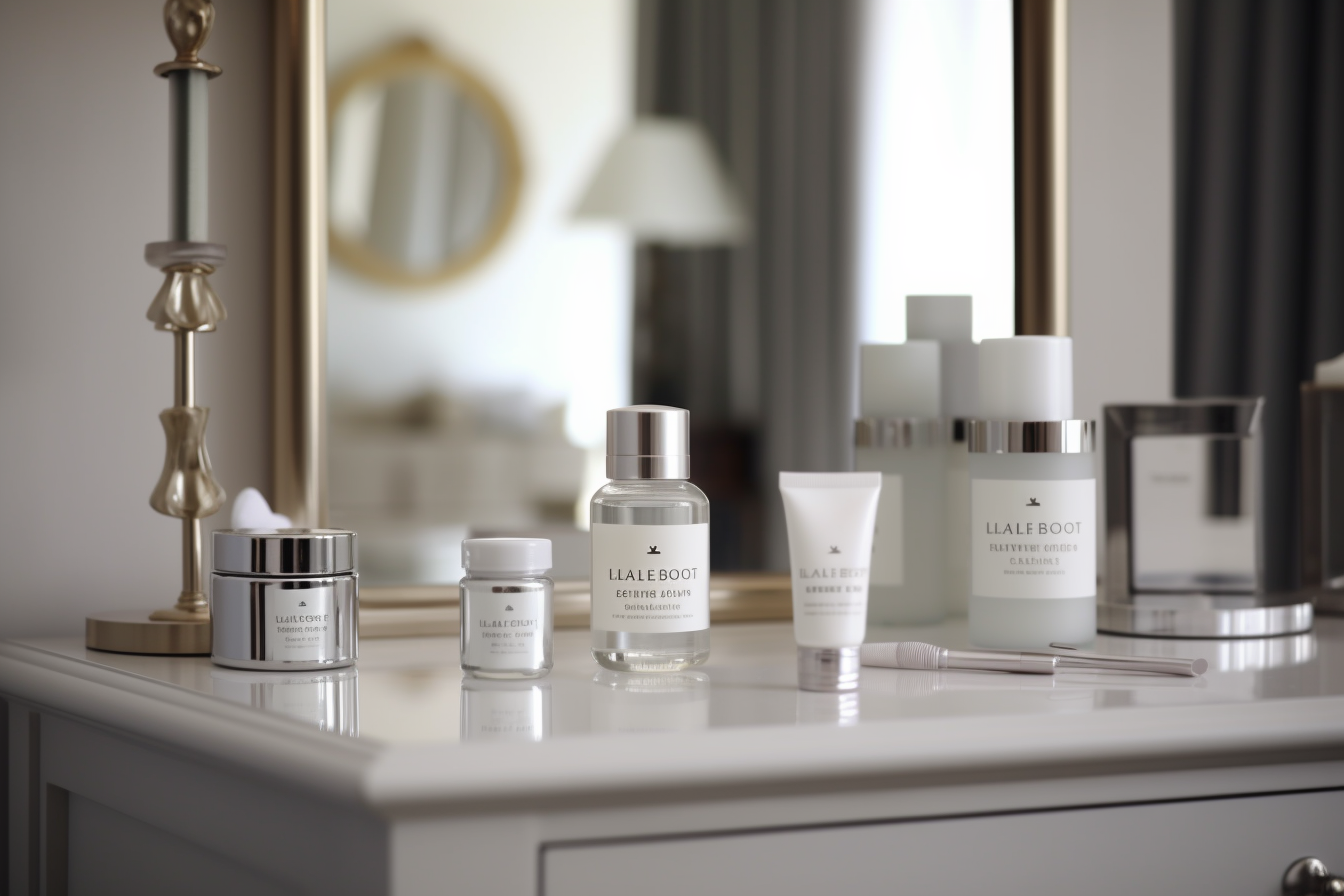Skincare is a topic that is important to many people, particularly women who want to achieve healthy-looking, flawless skin. With the abundance of products on the market claiming to provide the best results, it can be challenging to choose the right one for your skin type.
One of the ongoing debates in the skincare industry is whether natural or chemical products are better for the skin. Each has its advantages and disadvantages, making it essential to understand the differences between the two to make an informed decision when shopping for skincare products.
In this article, we will explore the debate between chemical and natural skincare and provide tips on how to choose the best products for your individual needs. By examining the pros and cons of each option, we aim to provide an objective analysis to help readers make the best decision for their skin.
Ultimately, the goal of this article is to empower readers with the information they need to take control of their skincare routine and achieve the healthy, radiant skin they desire.
Key Takeaways
- Choosing the right skincare product can be challenging, but understanding the differences between natural and chemical skincare is essential.
- Factors to consider when selecting skincare products include skin type, ingredients, and environmental impact, and consulting with a dermatologist can provide valuable recommendations.
- Natural skincare products are marketed as gentle and sustainable, but limitations include potential ineffectiveness in treating certain skin conditions, and not all natural products are created equal.
- Chemical skincare products are often more effective than natural products, but synthetic ingredients can have a negative impact on the environment and may lead to skin irritation and other adverse effects. It is important to balance effectiveness with sustainability and carefully consider the pros and cons of chemical vs natural skincare when choosing products.
Choosing Skincare Products

When selecting skincare products, it is important to consider factors such as skin type, ingredients list, and environmental impact, as well as the need for experimentation to determine the most suitable product for individual skin concerns.
It is essential to identify your skin type before selecting a skincare product as this can help determine the ingredients that will work best for your skin. For example, oily skin may require products that contain salicylic acid or benzoyl peroxide, while dry skin may benefit from products with hyaluronic acid or ceramides. Consulting with a dermatologist can provide valuable recommendations and guidance in selecting the best products for your skin type and concerns.
Additionally, it is important to carefully review the ingredients list of skincare products to avoid potential allergens or irritants. Not all natural products are safe for everyone, and some chemical ingredients may be beneficial for certain skin types.
Being aware of the environmental impact of skin care products is also crucial, as the beauty industry can have a significant negative impact on the planet. By considering these factors and experimenting with different products, individuals can find the best skincare regimen for their unique needs and concerns.
Pros and Cons of Natural Skincare
One aspect to consider when evaluating skincare options is the potential benefits and limitations of utilizing products made with naturally occurring ingredients.
Natural skincare products are often marketed as gentle and sustainable options, with the potential for fewer adverse reactions and environmental impacts.
The benefits of natural skin care products include the absence of harsh chemicals, which can cause irritation and dryness. Additionally, natural products may contain antioxidants and anti-inflammatory properties that can nourish and protect the skin.
However, a limitation of natural skincare is that it may not be as effective as chemical products in treating certain skin conditions. Moreover, it is important to note that not all natural products are created equal, and some may contain harmful ingredients. Therefore, it is essential to research the ingredients and quality of natural products before incorporating them into a skincare routine.
Pros and Cons of Chemical Skincare
The advantages and disadvantages of utilizing skincare products made with synthetic ingredients should be carefully considered when selecting the best product for your skin type.
Chemical skincare products are often more effective than natural skincare products due to the use of synthetic ingredients that are specifically designed to target skin concerns such as acne, wrinkles, and hyperpigmentation. These ingredients penetrate the skin more deeply and provide quicker results. Additionally, chemical skincare products are often more affordable than natural skincare products, making them accessible to a wider range of consumers.
However, the use of synthetic ingredients in skincare products can have a negative impact on the environment and may lead to skin irritation and other adverse effects. Some synthetic ingredients, such as parabens and phthalates, have been linked to hormonal disruptions and other health issues. Moreover, the overuse of chemical skincare products may cause damage to the skin’s natural protective barrier, leading to skin sensitivity and other long-term issues.
Therefore, it is important to carefully consider the pros and cons of chemical vs natural skincare and choose products that balance effectiveness with sustainability.
Frequently Asked Questions
Can natural ingredients cause skin irritation or allergies?

It is a common misconception that natural skin care products are always safe and gentle on the skin, while chemical products are the root of all skin problems. However, natural ingredients can also cause skin irritation and allergic reactions, especially for those with sensitive skin.
Ingredients such as essential oils, citrus extracts, and fragrances can cause redness, itching, and even chemical burns. It is important to note that not all natural ingredients are bad for the skin, and some may even have beneficial properties.
The key is to research and identify which ingredients work best for your skin type and avoid those that may trigger a reaction. Consulting with a dermatologist and patch-testing new products can also help prevent unwanted skin reactions.
In conclusion, while natural skin care products may have a lower environmental impact and be more sustainable, it is important to debunk the misconception that they are always safe and to be mindful of the ingredients used in both natural and chemical skincare products.
Are all chemical skincare products harmful to the environment?
Chemical skincare products can have various impacts on the environment, depending on their ingredients and manufacturing methods.
Some chemicals used in skincare products, such as microbeads and certain preservatives, are known to harm marine life and contribute to environmental pollution.
However, eco-friendly alternatives to these chemicals are available, such as natural preservatives and biodegradable exfoliants.
Additionally, some chemical skincare products are manufactured using sustainable methods and ingredients, which can reduce their environmental impact.
Therefore, it is important to choose skincare products based on their specific ingredients and manufacturing processes, rather than simply categorizing them as ‘chemical’ or ‘natural.’
By making informed choices, consumers can minimize their impact on the environment while still achieving their desired skincare results.
Can combining natural and chemical skincare products be effective?
Combining skincare products that include both natural and chemical ingredients can be effective, but it ultimately depends on the individual’s skin type and concerns.
Natural skincare products are often gentler and more sustainable, while chemical skincare products are often more effective and affordable. Combining the two can provide the benefits of both worlds.
However, it is important to consider the ingredients in each product and how they may interact with each other. Consulting with a dermatologist and testing products is the best way to determine what combination of natural and chemical skincare products will work best for an individual’s unique skin.
It is also important to consider the environmental impact of the products being used. Overall, combining natural and chemical skincare products can be effective, but it should be approached with caution and consideration of individual needs and the impact on the environment.
Are expensive skincare products always better than affordable ones?
When it comes to comparing the effectiveness of cheap versus pricey skincare products, price alone is not always an indicator of quality. The science behind skincare and its impact on price can be complex, with factors such as the quality and concentration of active ingredients, packaging, and marketing all playing a role in determining cost.
While some higher-priced products may contain more potent ingredients or innovative technologies, there are also affordable options that can deliver similar results. Ultimately, what matters most is finding products that work for your unique skin type and concerns, regardless of their price point.
It’s important to consider factors such as ingredients, formulation, and user reviews when selecting skincare products, rather than simply relying on price as a measure of quality.
How can I know if a skincare product is cruelty-free?
To determine if a skincare product is cruelty-free, it is important to look for specific labels or certifications that indicate the product has not been tested on animals.
One such label is the Leaping Bunny certification, which indicates that the product and its ingredients have not been tested on animals.
Additionally, ethical beauty brands often pride themselves on their commitment to animal testing alternatives and may include this information on their packaging or website.
It is important to note that some brands may claim to be cruelty-free without proper certification, so it is always best to do research and look for reputable sources.
By choosing to support cruelty-free brands and products, individuals can make a positive impact on animal welfare and support ethical practices in the beauty industry.
